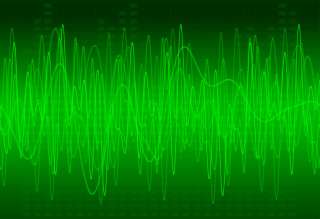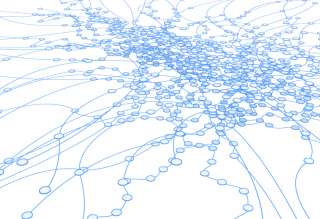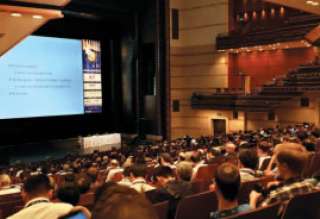SPS Feed
Top Reasons to Join SPS Today!
1. IEEE Signal Processing Magazine
2. Signal Processing Digital Library*
3. Inside Signal Processing Newsletter
4. SPS Resource Center
5. Career advancement & recognition
6. Discounts on conferences and publications
7. Professional networking
8. Communities for students, young professionals, and women
9. Volunteer opportunities
10. Coming soon! PDH/CEU credits
Click here to learn more.
The Latest News, Articles, and Events in Signal Processing
Signal processing has played a foundational role in the consumer electronics revolution of the past several decades. Mobile devices, smart-home technologies, digital cameras, and countless other cutting-edge products have benefited from signal processing-enabled innovations.
The widespread adoption of new 3D sensor and authoring technologies has made it possible to capture 3D scenes and models in real time with decent visual quality. As an example, Microsoft's Kinect and Apple's PrimeSense technology are now being used in a wide variety of interactive 3D mobile applications, including gaming and augmented reality applications.
In today's era of the Internet of Things (IoT), the amalgamation of information and communication technologies with actuating devices has reached all corners of the modern world. In the context of critical infrastructures, such as the power grid, this cyberphysical transformation has permeated all system levels as evident in devices ranging from crucial operational components (e.g., generators) and advanced sensors...
The Multimedia Signal Processing Technical Committee (MMSP TC) of the IEEE Signal Processing Society (SPS) promotes the advancement of multimedia signal processing technology.
Named after the ancient Greek goddess of wisdom, Athens is not just another modern metropolis. With numerous ancient monuments standing sentinel along her streets and squares, Athens never tires of revealing her glorious past to her visitors.
It is an amazing sign of the times when the youth across many nations are uniting in their will to raise awareness about the perils of global warming and the need for immediate action.
Correlation filters (CFs) have been extensively used in tracking tasks due to their high efficiency although most of them regard the tracked target as a whole and are minimally effective in handling partial occlusion. In this study, we incorporate a part-based strategy into the framework of CFs and propose a novel multipart correlation tracker with triangle-structure constraints.
Self-learning super-resolution (SLSR) algorithms have the advantage of being independent of an external training database. This paper proposes an SLSR algorithm that uses convolutional principal component analysis (CPCA) and random matching. The technologies of CPCA and random matching greatly improve the efficiency of self-learning. There are two main steps in this algorithm: forming the training and testing the data sets and patch matching.
This paper presents a joint dehazing and denoising scheme for an image taken in hazy conditions. Conventional image dehazing methods may amplify the noise depending on the distance and density of the haze. To suppress the noise and improve the dehazing performance, an imaging model is modified by adding the process of amplifying the noise in hazy conditions.
The problem of authenticating a re-sampled image has been investigated over many years. Currently, however, little research proposes a statistical model-based test, resulting in that statistical performance of the resampling detector could not be completely analyzed. To fill the gap, we utilize a parametric model to expose the traces of resampling forgery, which is described with the distribution of residual noise.
The scope of the Periodical is the various aspects of research in multimedia technology and applications of multimedia, including, but not limited to, circuits, networking, signal processing, systems, software, and systems integration, as represented by the Fields of Interest of the sponsors.
The avoidance of spatial aliasing is a major challenge in the practical implementation of sound field synthesis. Such methods aim at a physically accurate reconstruction of a desired sound field inside a target region using a finite ensemble of loudspeakers.
Recently, generative neural network models which operate directly on raw audio, such as WaveNet, have improved the state of the art in text-to-speech synthesis (TTS). Moreover, there is increasing interest in using these models as statistical vocoders for generating speech waveforms from various acoustic features. However, there is also a need to reduce the model complexity, without compromising the synthesis quality.
Multi-channel linear prediction (MCLP) can model the late reverberation in the short-time Fourier transform domain using a delayed linear predictor and the prediction residual is taken as the desired early reflection component. Traditionally, a Gaussian source model with time-dependent precision (inverse of variance) is considered for the desired signal.
Each edition of the challenge on Detection and Classification of Acoustic Scenes and Events (DCASE) contained several tasks involving sound event detection in different setups.
Pages
SPS Social Media
- IEEE SPS Facebook Page https://www.facebook.com/ieeeSPS
- IEEE SPS X Page https://x.com/IEEEsps
- IEEE SPS Instagram Page https://www.instagram.com/ieeesps/?hl=en
- IEEE SPS LinkedIn Page https://www.linkedin.com/company/ieeesps/
- IEEE SPS YouTube Channel https://www.youtube.com/ieeeSPS

















